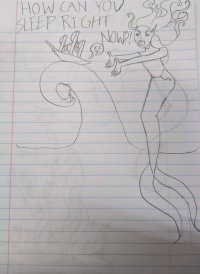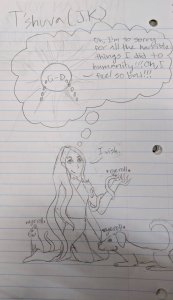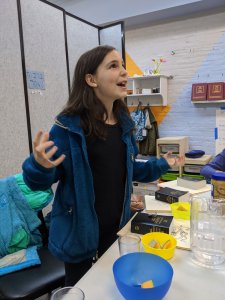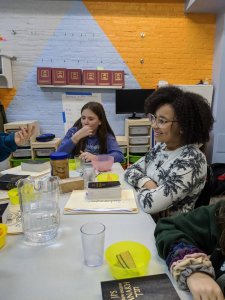
Have you ever watched a ship be tossed in the waves of the ocean? Take a second to watch a video of this terrifying sight. Then tell me, would you curl up in the ship and fall asleep?
The prophet Jonah does a lot of things that our class has struggled to understand. Why would a prophet run from God? Why would he use the words he does when he prays? And why, WHY would he fall asleep in the middle of a storm?
We are studying the Book of Jonah as an introduction to Nevi’im (Prophets), the second book of the Tanakh (the Hebrew Bible). The prophets, as God’s representatives, often gave unpopular messages to the people and can teach us a lot about how to be effective leaders. What I didn’t expect was how much Jonah’s story would lead us to think about our personal relationships with God.

“Oh God, oh God,” said Leo as we watched the ships disappear under massive waves. I had to point out the irony of this, as Leo is outspoken in his belief that God doesn’t exist. This prompted a conversation where each student shared their ideas about God and their relationship to God.
“I don’t like a lot of the ideas and images about God that I hear, but I believe in something.”
“I don’t know yet.”
We noticed that, both in Jonah’s story and the Tower of Babel story, God has human qualities. God gets frustrated, makes mistakes, and, in some of our minds, isn’t too good at apologizing after those mistakes.

Ronia pointed out that we don’t get a lot of God’s perspective in the Book of Jonah. When Jonah gets swallowed by the big fish, we get to hear his whole prayer to God, from his perspective. All we get from God is “The Eternal commanded the fish, and it spewed Jonah out upon dry land” (Jonah 2:11). We wondered how God felt about Jonah’s prayer, what God wanted to say back.

“This is why God doesn’t feel human to me,” said Remi. “We don’t know enough about God, God’s too mysterious.”
With a class of such deep thinkers, I look forward to learning more about each BMitzvah member’s personal theology. We’ll be following these ideas into our next Rosh Pinah unit on Jewish ideas about God.
We’ll also be returning to the Jonah text in snacktime learning after our winter break. Our Jewish tradition teaches us when it comes to Tanakh to “Turn it over, and turn it over again, for all is therein,” (Pirkei Avot 5:22). When we return, we’ll continue to look for clues in the text as to what makes a good leader, building to the creation of a workshop on Jewish leadership taught by the BMitzvah cohort for our younger Nitzanim cohort (2nd-4th grade).
What do you think makes a good leader? Who do you hold up as examples of great leadership? I encourage you to share some examples with your kids, either through biographical books, movies, or family stories, and see who their leadership heroes are!

